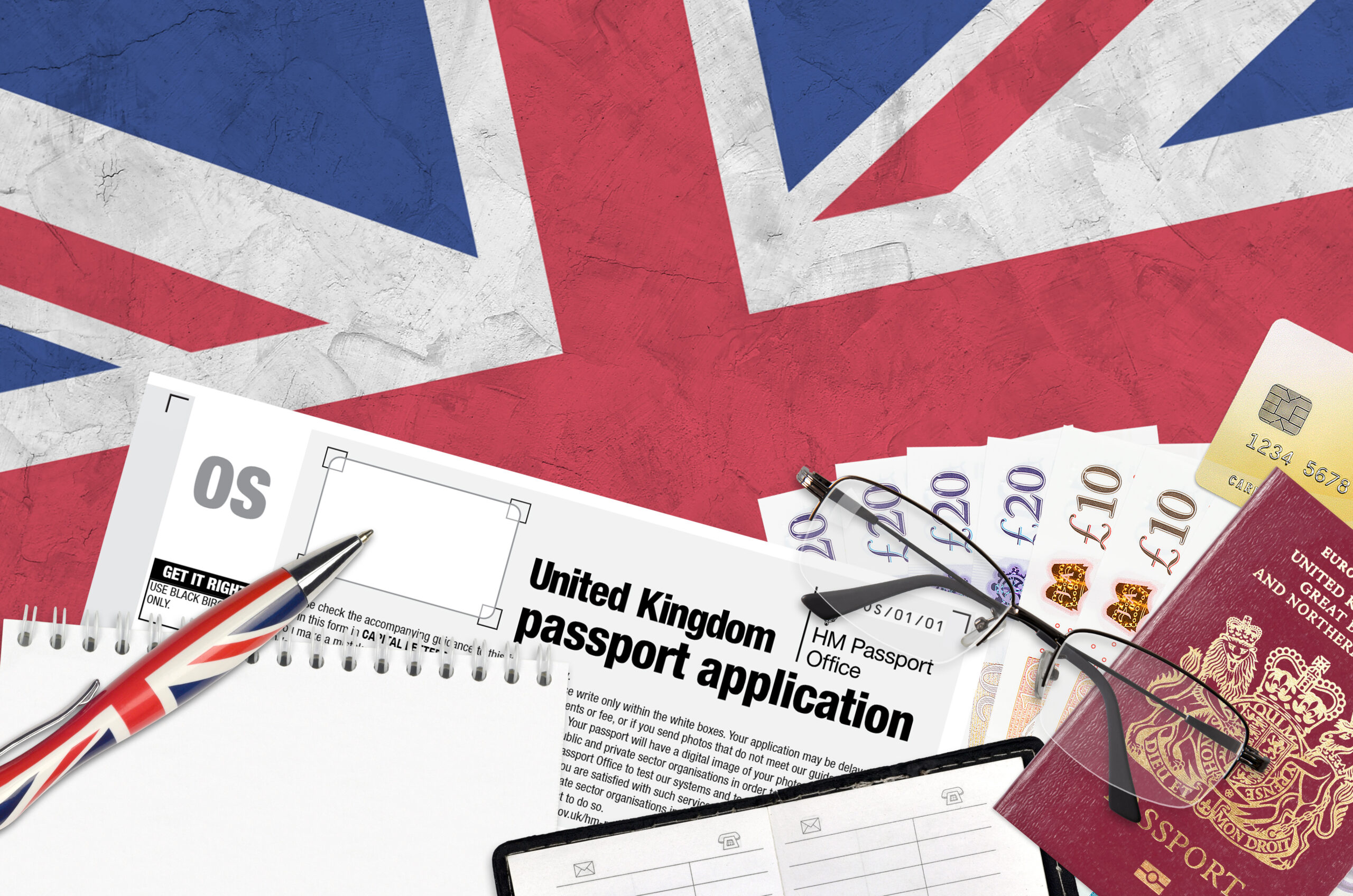At IHRC Legal, we frequently receive inquiries about the UK naturalisation process, specifically the Good Character test for British citizenship, particularly in cases involving criminal records. The Home Office has strict guidelines regarding criminality and naturalisation, which changed on 30 July 2023.
Previous Rules (Before 30 July 2023)
Under the old rules, applicants with a custodial sentence of four years or more were normally refused. Applications could still be considered if:
- 15 years had passed since the end of a sentence of 12 months or more.
- 10 years had passed since the end of a sentence of less than 12 months.
Non- custodial sentences and out of court disposals used to require 3 years to have passed from the date of sentencing.
How Criminal Convictions Affect UK Naturalisation
Custodial Sentences & UK Citizenship Eligibility
Under the new Home Office guidance, an application for British citizenship will normally be refused if the applicant
- has received a custodial sentence of at least 12 months (UK or overseas).
- Is a persistent offender who shows a disregard for the law.
- Has committed an offence causing serious harm.
- Has committed a sexual offence or is on the Sex Offenders Register.
When assessing custodial convictions, the full sentence imposed by the court is considered, not the time actually served.
Key Considerations:
- Sentences of 12+ months (including consecutive sentences) normally result in refusal.
- Sentences under 12 months are assessed based on the balance of probabilities.
- Suspended sentences are treated as non-custodial unless activated due to reoffending.
- Concurrent sentences are served at the same time and not combined.
- Consecutive sentences are added together when determining eligibility.
Foreign convictions are treated the same as UK sentences, but offences criminalised abroad that are lawful in the UK (e.g., trade union activity) may be disregarded. If a conviction is overturned, it is disregarded; if a sentence is revised, the new sentence applies, but the original conviction date remains relevant.
Assessing Good Character: Balance of Probabilities
Applicants with sentences under 12 months or non-custodial penalties are assessed on a balance of probabilities, weighing negative factors against positive contributions.
Factors Considered:
- Time since the offence – Recent offences increase the risk of refusal.
- Number & pattern of offences – Multiple or escalating offences indicate disregard for the law.
- Nature & seriousness – Violent, drug-related, or anti-social offences carry more weight.
- Age at the time of the offence – Young offenders may be granted leniency if they have since demonstrated good character.
- Rehabilitation & contributions – Positive actions, such as voluntary work or rehabilitation programs, may improve eligibility.
While the Home Office exercises discretion, applicants should be aware that frequent non-custodial offences or out-of-court disposals may still lead to refusal if they indicate a persistent disregard for the law.
Persistent Offenders & Disregard for the Law
Applications from persistent offenders—those who repeatedly break the law—are normally refused. This applies even if offences were minor or non-custodial, but indicate a pattern of disregard for the law.
Key Factors:
- Frequency & pattern of offences – A few minor offences over many years may be overlooked, but multiple offences in a short time raise concerns.
- Escalation in seriousness – If offences worsen over time (e.g., theft escalating to violent crime), refusal is more likely.
- Consistent disregard for the law – A history of fines, community orders, or suspended sentences may lead to rejection.
Offences Causing Serious Harm & Naturalisation Refusals
Applications will normally be refused if an applicant has committed an offence that caused serious physical or psychological harm to victims or contributed to broader societal harm.
Examples Include:
- Violent, drug-related, sexual offences, or hate crimes.
- Crimes with long-term victim impact.
Sexual Offences & the Sex Offenders Register
Anyone subject to notification requirements (Sex Offenders Register) or court orders related to sexual harm (e.g., Sexual Harm Prevention Orders) will normally be refused while these remain in force.
Even after removal from the register, past sexual offence convictions will often result in refusal due to their serious impact. Each case is assessed individually.
Non-Custodial Sentences & Out-of-Court Disposals
Non-custodial sentences and out-of-court disposals can impact British citizenship applications. While some do not lead to automatic refusal, the balance of probabilities is applied.
Key Considerations:
- Discharges (Absolute & Conditional) – Not considered convictions but recorded on criminal records. Conditional discharges may count if reoffended.
- Fines & Compensation Orders – Considered convictions and must be declared. Large, frequent, or recent fines may raise concerns.
- Fixed Penalty Notices (FPNs) & Civil Orders – Usually not an issue unless unpaid or frequent, indicating disregard for the law.
- Cautions & Community Resolutions – Can impact character assessment, especially if recent or frequent.
- Community Sentences – Supervised rehabilitation or service-based sentences; multiple or recent orders may lead to refusal.
- Hospital Orders – If not fully discharged, the application is normally refused.
Each case is assessed individually, considering the nature, frequency, and seriousness of offences.
Exceptional Circumstances
There may be exceptions or discretionary grants for naturalisation where the applicant can demonstrate compelling mitigating factors. Each case is considered on its own merits.
FAQ: UK Naturalisation & Criminal Records
Q1: Can I apply for British citizenship if I have a criminal record?
Yes, but it depends on the nature and timing of your offence. The Home Office assesses cases individually under the Good Character requirement.
Q2: How far back does the Home Office check criminal records?
They assess your entire criminal history, including spent convictions, fines, and out-of-court disposals.
Q3: Will a speeding ticket affect my UK citizenship application?
No, minor traffic offences like speeding fines are generally not a problem unless they indicate persistent offending.
Q4: Will a past caution affect my British citizenship application?
Yes, cautions are considered part of your criminal record. While a single caution for a minor offence may not result in refusal, multiple cautions or recent ones can impact your Good Character assessment.
Q5: Can I apply for UK citizenship if I was convicted abroad?
Yes, but foreign convictions are treated the same as UK sentences. However, offences criminalised abroad but legal in the UK (e.g., homosexuality) may be disregarded.
Q6: What if my conviction was overturned on appeal?
If your conviction was quashed or overturned, it will not count against your citizenship application. However, the Home Office may still assess the circumstances surrounding the initial charges.
Q7: How do fixed penalty notices (FPNs) affect British citizenship?
A single Fixed Penalty Notice (FPN) does not usually result in refusal. However, multiple FPNs, unpaid penalties, or a pattern of offending behaviour may indicate disregard for the law and impact your application.
Q8: Can I apply for UK citizenship if I have a spent conviction?
Yes, but even spent convictions are considered in the Good Character assessment. The Home Office evaluates the nature of the offence, time elapsed, and rehabilitation efforts before making a decision.
Q9: If I was arrested but not charged, will this affect my application?
An arrest without charge does not automatically result in refusal. However, if there is a pattern of arrests related to criminal behaviour, the Home Office may consider it when assessing your character.
Q10: What should I do if I forgot to declare a past conviction in my application?
Failing to declare a conviction or offence can be considered deception, which is a serious matter and may lead to refusal or even ban you from applying in the future. If you made a genuine mistake, seek legal advice immediately.
Contact IHRC Legal Today
For expert legal advice on how these rules affect your British citizenship application, contact our expert solicitors.





